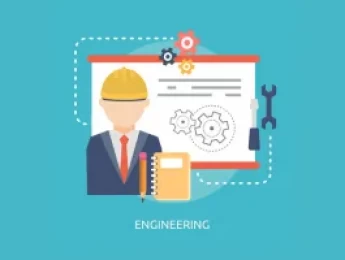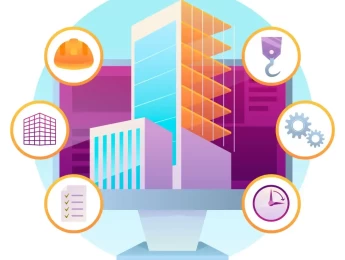Transportation systems are vital to modern society, and organisations and the public use a vast number of systems every day. To ensure these systems function correctly, assessing their architecture and comparing the features and processes to transportation standards is important.
The transportation standards were established as a guideline for all transportation systems to guarantee their harmonious operation. Furthermore, these systems must be accessible to any organisation or individual who wishes to use them and completely safe.
While traditional systems have been successful for many years, there will forever be a change in customer demands. As technologies are continuously advancing, there has been a rise in the popularity of intelligent transportation systems. Intelligent transportation systems are quickly becoming the new standard of transportation, as these systems are more cost-effective, reduce negative environmental impacts and are increasingly more reliable for health and safety.
Before integrating an intelligent system, it is important to understand its architecture and processes in comparison to traditional systems and design an effective way to merge traditional standards with upcoming ones.
Upon completion of this course, participants will be able to:
- Understand the vitality of architecture and transportation standards.
- Identify the needs and demands of consumers and stakeholders.
- Analyse current transportation architecture and location faults and implement solutions.
- Advance existing architecture utilising new technology to create a more cost-effective and safe system.
- Review the trends in architecture and transportation.
- Examine intelligent transportation systems and how they are becoming the new standard.
- Assess intelligent transportation systems and their advantages and disadvantages.
- Utilise the inter-dependencies of components to simplify the data exchange within systems.
This course is designed for anyone responsible for managing transportation systems or those who desire to integrate intelligent systems into current systems. It would be most beneficial for:
- Civil Engineers
- Urban Planners
- Project Managers
- Operations Managers
- Architects
- Strategic Development Managers
- Traffic and Transport Engineers
This course uses a variety of adult learning styles to aid full understanding and comprehension. Participants will review case studies of existing transportation systems to highlight how they follow standard practices and assess how they may be adapted into intelligent transportation systems.
They will be provided with all the necessary tools and equipment to participate in the learning exercises. Combined with presentations, group discussions, practical demonstrations, and video materials, participants will have ample opportunities to develop their knowledge of the taught content. Furthermore, they can practise the associated practical skills while completing the supplied case study.
Day 5 of each course is reserved for a Q&A session, which may occur off-site. For 10-day courses, this also applies to day 10
Section 1: Introduction to Transportation Systems
- Describing what a transportation system is.
- What transportation often involves.
- The advantages and disadvantages of existing systems.
- The evolution of transportation systems.
- Common issues and challenges systems face due to changing consumer demands.
- To plan, design and implement system changes to improve efficiency and safety.
Section 2: Intelligent System Architecture
- The history of intelligent transportation systems.
- Concepts, principles, and functions of an intelligent system.
- Key features of intelligent transport system architecture.
- Comparing the similarities and differences between enterprise and intelligent system architecture.
- Monumental technologies that have led to advanced intelligent systems.
- Utilising the Open Group Architectural Framework (TOGAF) when designing a system.
Section 3: Intelligent Transportation Standards
- The necessity of standardising intelligent transport systems.
- How standards are evolving from traditional systems to advanced, technology-based systems.
- Common configurations found in intelligent systems.
- The various types of intelligent transportation system processes and standard frameworks.
- The system telecommunication infrastructure – V2V and V2I data exchange.
Section 4: Virtualization of Intelligent Systems
- Understanding what virtualisation is.
- How virtualisation is relevant within intelligent transportation systems.
- Layers of system infrastructure and virtualisation benefits.
- Concepts and principles for intelligent systems.
- The importance of modelling and simulating potential system designs.
- The consequences of poor virtualisation when attempting to implement an intelligent transportation system.
Section 5: Architecture Design within Transportation Systems
- Integrating intelligent designs when planning new transportation systems.
- Merging intelligent system features to existing systems.
- Maintaining high standards of risk management throughout is important.
- Prioritising health and safety.
- Reacting swiftly and appropriately in emergency situations.
- Consistently monitor performance throughout all development and post-implementation to ensure efficiency and safety.
- Intelligent systems as the future of multimodal transportation systems.
Upon successful completion of this training course, delegates will be awarded a Holistique Training Certificate of Completion. For those who attend and complete the online training course, a Holistique Training e-Certificate will be provided.
Holistique Training Certificates are accredited by the British Assessment Council (BAC) and The CPD Certification Service (CPD), and are certified under ISO 9001, ISO 21001, and ISO 29993 standards.
CPD credits for this course are granted by our Certificates and will be reflected on the Holistique Training Certificate of Completion. In accordance with the standards of The CPD Certification Service, one CPD credit is awarded per hour of course attendance. A maximum of 50 CPD credits can be claimed for any single course we currently offer.
- Course Code IND03-108
- Course Format Online, Classroom,
- Duration 5 days














